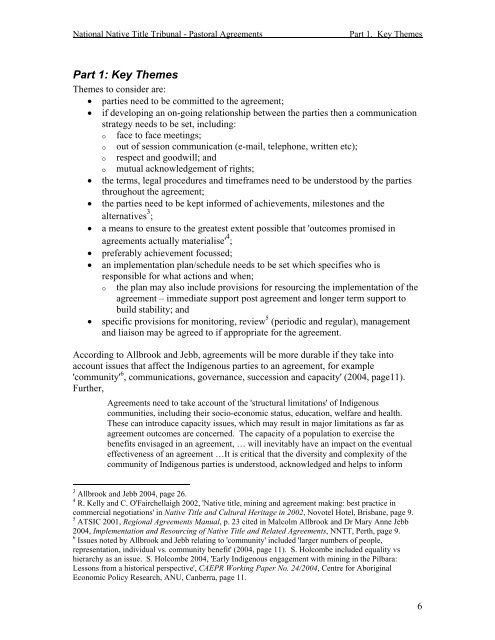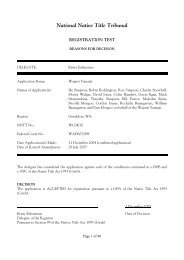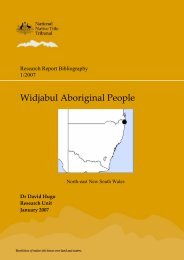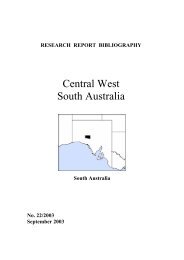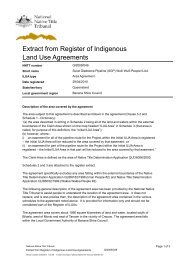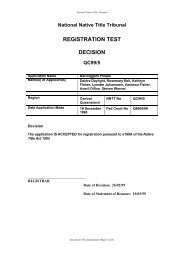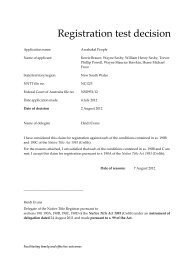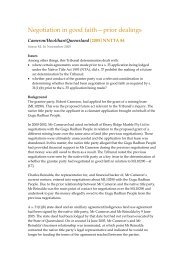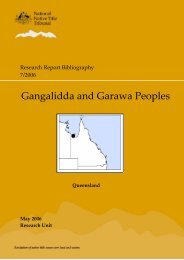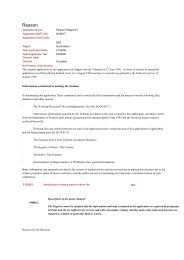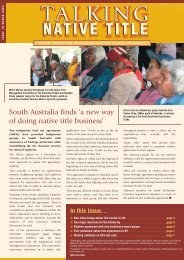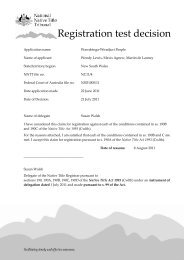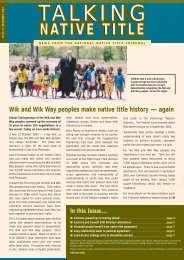Pastoral Agreements: Content Ideas - National Native Title Tribunal
Pastoral Agreements: Content Ideas - National Native Title Tribunal
Pastoral Agreements: Content Ideas - National Native Title Tribunal
You also want an ePaper? Increase the reach of your titles
YUMPU automatically turns print PDFs into web optimized ePapers that Google loves.
<strong>National</strong> <strong>Native</strong> <strong>Title</strong> <strong>Tribunal</strong> - <strong>Pastoral</strong> <strong>Agreements</strong><br />
Part 1. Key Themes<br />
Part 1: Key Themes<br />
Themes to consider are:<br />
• parties need to be committed to the agreement;<br />
• if developing an on-going relationship between the parties then a communication<br />
strategy needs to be set, including:<br />
o face to face meetings;<br />
o out of session communication (e-mail, telephone, written etc);<br />
o respect and goodwill; and<br />
o mutual acknowledgement of rights;<br />
• the terms, legal procedures and timeframes need to be understood by the parties<br />
throughout the agreement;<br />
• the parties need to be kept informed of achievements, milestones and the<br />
alternatives 3 ;<br />
• a means to ensure to the greatest extent possible that 'outcomes promised in<br />
agreements actually materialise' 4 ;<br />
• preferably achievement focussed;<br />
• an implementation plan/schedule needs to be set which specifies who is<br />
responsible for what actions and when;<br />
o<br />
the plan may also include provisions for resourcing the implementation of the<br />
agreement – immediate support post agreement and longer term support to<br />
build stability; and<br />
• specific provisions for monitoring, review 5 (periodic and regular), management<br />
and liaison may be agreed to if appropriate for the agreement.<br />
According to Allbrook and Jebb, agreements will be more durable if they take into<br />
account issues that affect the Indigenous parties to an agreement, for example<br />
'community' 6 , communications, governance, succession and capacity' (2004, page11).<br />
Further,<br />
<strong>Agreements</strong> need to take account of the 'structural limitations' of Indigenous<br />
communities, including their socio-economic status, education, welfare and health.<br />
These can introduce capacity issues, which may result in major limitations as far as<br />
agreement outcomes are concerned. The capacity of a population to exercise the<br />
benefits envisaged in an agreement, … will inevitably have an impact on the eventual<br />
effectiveness of an agreement …It is critical that the diversity and complexity of the<br />
community of Indigenous parties is understood, acknowledged and helps to inform<br />
3 Allbrook and Jebb 2004, page 26.<br />
4 R. Kelly and C. O'Fairchellaigh 2002, '<strong>Native</strong> title, mining and agreement making: best practice in<br />
commercial negotiations' in <strong>Native</strong> <strong>Title</strong> and Cultural Heritage in 2002, Novotel Hotel, Brisbane, page 9.<br />
5 ATSIC 2001, Regional <strong>Agreements</strong> Manual, p. 23 cited in Malcolm Allbrook and Dr Mary Anne Jebb<br />
2004, Implementation and Resourcing of <strong>Native</strong> <strong>Title</strong> and Related <strong>Agreements</strong>, NNTT, Perth, page 9.<br />
6 Issues noted by Allbrook and Jebb relating to 'community' included 'larger numbers of people,<br />
representation, individual vs. community benefit' (2004, page 11). S. Holcombe included equality vs<br />
hierarchy as an issue. S. Holcombe 2004, 'Early Indigenous engagement with mining in the Pilbara:<br />
Lessons from a historical perspective', CAEPR Working Paper No. 24/2004, Centre for Aboriginal<br />
Economic Policy Research, ANU, Canberra, page 11.<br />
6


